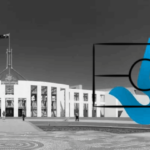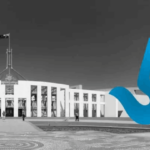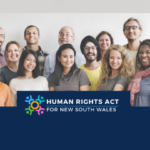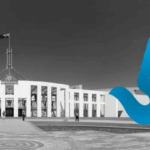NSW Greens to Introduce Human Rights Act for NSW
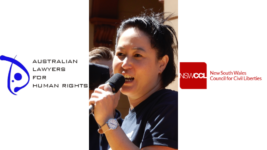
New South Wales Greens human rights spokesperson Jenny Leong gave notice on 19 March that she’ll soon be introducing a Human Rights Bill into NSW parliament, which will seek to uphold the rights of NSW citizens and residents under state law, and she further notes that the NSW Labor government has assured it’s open to working constructively on the issue.
Not having a Human Rights Act in place in 2025 does seem a little odd for a state like NSW, especially as most liberal democracies around the planet have one. But the lack of a HRA does go a long way to explaining how successive NSW governments have been getting away with riding roughshod over constituents’ liberties whilst enacting the rights-eroding laws of recent decades.
Since 2016, successive NSW governments have been passing antiprotest laws, which crescendoed with the Perrottet government’s enactment of an extreme antiprotest regime in 2022, and while the current Labor administration continues to build on that, it’s also, of late, enacted youth crime laws targeting First Nations kids, along with having refused to repeal illegitimately enacted hate laws.
After having ramped up its campaigning over the last 12 months, Human Rights Act for NSW has welcomed Leong’s announcement. The coalition of civil society groups has recently been running a series of events relating to the major law reform, which have included input from the NSW Bar Association, the Australian Human Rights Commission and former High Court Justice Michael Kirby.
An end to rights-eroding law
“The NSW government cannot be trusted when it comes to protecting and promoting human rights for people in our state,” Leong said in a 19 March statement, “which is why it is time for the parliament to act, and why we are today giving notice of a bill to introduce a Human Rights Act for NSW.”
“From decimating our right to protest to extending hate speech protections for only a select few and ramming through bail laws that disproportionately impact First Nations kids, the NSW government is playing fast and loose with our human rights,” she continued, “and playing straight into the hands of the right-wing fringe who wants to promote division and erode our democracy.”
On giving notice, Leong told the chamber that she’ll be consulting with the community and her parliamentary colleagues over coming months, in respect of freedoms and liberties that need to be upheld under state legislation, and she quizzed the state’s chief lawmaker on whether his government would be prepared to work on this matter, and he answered in the affirmative.
Daley added that legislating a HRA is a complex undertaking that “has not been a priority for his government to date”. But of course, the understanding on the street is that successive NSW governments have not made the protections of citizens’ rights a priority because a legislated bill of rights would serve to curb its own power.
Indeed, Leong made clear that NSW communities “deserve better than ad hoc, reactive reform that offers nothing beyond more criminalisation, more policing and more political spin”, which is what is happening under the Minns government, and all successive state governments, since she entered office in 2015.
“We need a NSW Human Rights Act that clearly sets out and protects equality and dignity for everyone – including rights to essentials like housing and education,” she underscored.
A history of deprioritisation
The Human Rights for NSW campaign is a coalition of forty seven civil society organisations, including Australian Lawyers for Human Rights (ALHR), the NSW Council for Civil Liberties, the Australian Lawyers Alliance, Community Legal Centres NSW, the NSW Bar Association, the National Justice Project and the Human Rights Law Centre.
HRA4NSW points out that this state currently lags behind other Australian jurisdictions that have acted to legislate a system designed to uphold citizen’s rights, to ensure that parliament enacts laws that don’t undermine basic rights and to provide pathways to resolve rights disputes, which includes the ACT with its 2004 HRA, along with the 2006 charter in Victoria and the 2019 HRA in Queensland.
So, while it can be said that this state is late to the game compared to those jurisdictions, the truth is they’re the anomalies in this case, as the vast majority of Australian states and territories lack rights protections, as the Australian government has deprioritised such measures, ever since the 1890s drafters of the Australian Constitution decided against protecting the rights of the people.
But as those behind HRA4NSW outlined last week it now appears that “significant momentum for legislative protection of human rights across Australia” is building, as South Australia is holding an inquiry into the matter and a federal inquiry last year recommended passing a national HRA, which had been spurred by a 2023 Australian Human Rights Commission report recommending the same.
The time is now
“It’s time for NSW to begin a conversation about putting in place similar laws to protect the wellbeing of everyone in our state,” said Australian Lawyers for Human Rights president Kerry Weste.
“Holding a public inquiry into a Human Rights Act for NSW would give everyone in our state the chance to design a law that meets the needs of our many different communities.”
West told Sydney Criminal Lawyers, following the HRA4NSW forum featuring Kirby last October, that the former High Court justice noted that the biggest challenge for NSW in legislating a HRA is the nation’s “long history of failing to legally protect human rights”.
A key reason why Leong’s proposal may garner far-reaching support amongst the NSW constituency these days, is that over the course of the 2020-22 COVID-19 pandemic and the extreme restrictions that were placed upon entire community’s rights and liberties, a lot of constituents who were unaware that NSW or indeed, the nation does not protect rights were then made privy to the fact.
NSW Council for Civil Liberties president Tim Roberts explained in a statement following Leong’s announcement that a state HRA would create a legislative framework that “articulates and protects human rights for everyone in NSW based on Australia’s international legal obligations”.
“It would significantly improve the way our parliament, government and public entities develop laws, policies and make decisions,” the lawyer said in concluding.
“It would also create accessible pathways that everyone in NSW can use to take action for a solution if their human rights are breached.”


